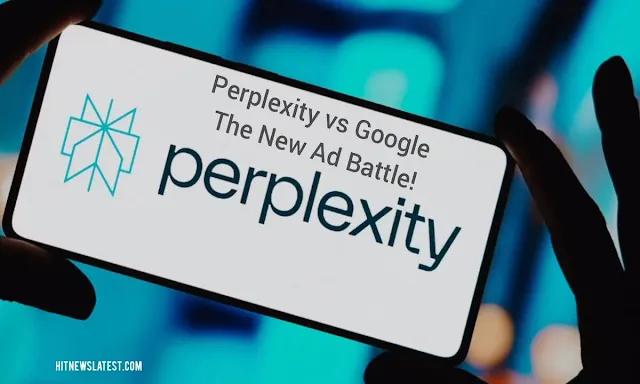 |
| Perplexity vs Google: The New Ad Battle! |
In a bold and strategic move, Perplexity is setting its sights on becoming a major player in the digital advertising industry, directly challenging Google's dominance. CEO Aravind Srinivas recently revealed the company’s ambitions during an interview on the TBPN podcast, emphasizing their plans to build a dedicated web browser called Comet to gather user data beyond their current application.
Perplexity’s Ambitious Move into the Digital Advertising Market
According to Srinivas, one of the main reasons for developing the Comet browser is the desire to "access user data beyond the app to understand users better." He highlighted that many queries submitted to AI platforms are often limited to work-related topics and do not offer a full picture of a user's lifestyle. By collecting data such as shopping preferences, favorite restaurants and hotels, and frequently visited websites, Perplexity aims to create a more complete profile of its users.
With this rich data, the company plans to offer highly targeted advertisements through a new "Discover" tab within the Comet browser. This move could give advertisers a powerful new tool for reaching potential customers with greater precision.
Despite facing some developmental challenges, Comet is on track for an official launch in May 2025, Srinivas confirmed. The company’s approach signals a clear intent to disrupt the status quo in digital advertising, a space historically dominated by tech giants.
Strategic Partnerships to Boost Reach
In a significant step toward wider market penetration, Perplexity has announced a strategic partnership with Motorola. As part of this deal, the Perplexity app will come pre-installed on upcoming Motorola Razr smartphones, accessible through the Moto AI feature simply by saying "Ask Perplexity."
Furthermore, Bloomberg reported that Perplexity is in talks with Samsung to establish a similar arrangement, although no official confirmation has been made yet. If successful, these partnerships could significantly accelerate Perplexity’s expansion into the mobile ecosystem.
Data Collection: A Double-Edged Sword
The strategy of gathering user behavior data is not new. Tech giants like Google and Meta have long relied on extensive tracking across websites to fuel their multibillion-dollar advertising empires. Even users without Facebook or Instagram accounts can find their activities tracked by Meta’s embedded technologies across the web.
Even Apple, which often markets itself as a champion of privacy, collects location data from certain apps to improve its advertising services. However, public sentiment is increasingly skeptical of these practices, particularly in the United States and Europe, where concerns over digital privacy continue to grow.
Timing Could Be Key
Perplexity's bold initiative comes at a particularly turbulent time for Google. The tech titan is currently entangled in a major legal battle with the U.S. Department of Justice, facing accusations of monopolistic practices in the search and advertising sectors. As part of a potential settlement, Google could be forced to sell its highly popular Chrome browser.
If such a sale occurs, companies like OpenAI, Perplexity, and Yahoo have already expressed interest in acquiring Chrome, aiming to leverage its massive user base to expand their influence in the digital advertising market.
A New Era of Competition?
As Perplexity moves closer to launching Comet and expanding its partnerships, the landscape of online advertising could be on the verge of significant change. By combining AI-driven insights with robust data collection strategies, the company is positioning itself as a serious contender against long-established giants.
While questions about privacy and ethics remain, one thing is clear: Perplexity is ready to rewrite the rules of the game.
